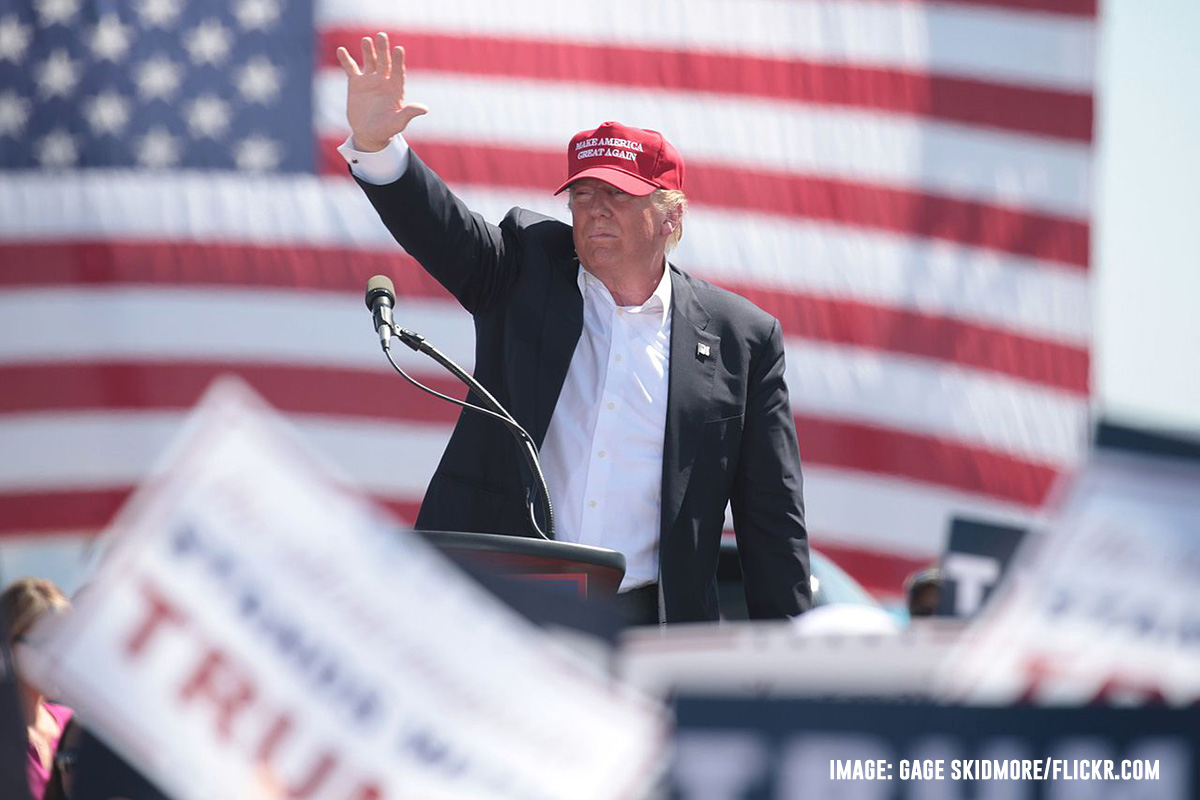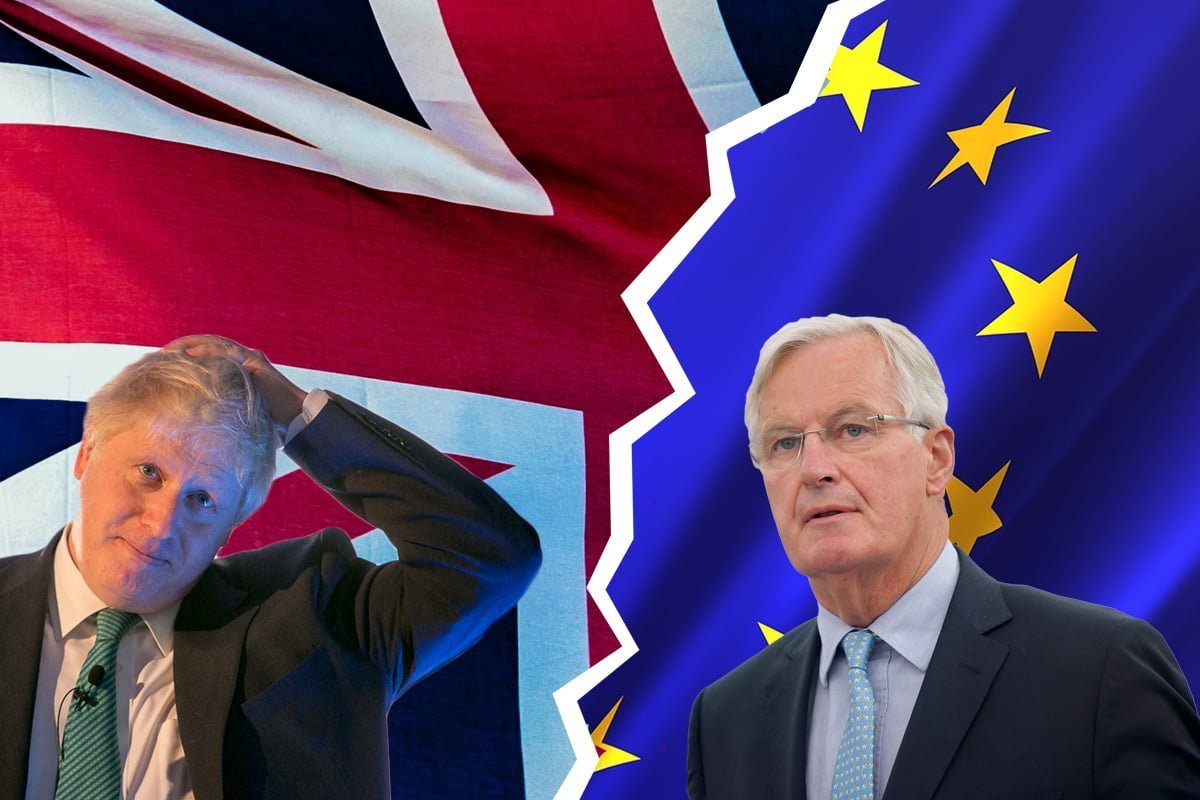Negotiations between Britain and the EU are going down to the wire. With Boris Johnson in thrall to Tory Brexiteers, the UK could well crash out of Europe without a deal, creating a perfect storm for British capitalism.
With 2020 drawing to a close, many are now wondering what 2021 could have in store. The answer may well be: fresh meat and vegetables rotting in lorry parks across Kent. We are, of course, referring to the Brexit trade negotiations which are staggering towards their conclusion.
With everything else that’s been going on, you’d be forgiven for having forgotten about Brexit. The question to ask is: has Boris forgotten about Brexit?
The stakes are high and the clock is ticking. Unless a deal is struck before 31 December, Britain will crash out of the EU on WTO rules. But for both sides to have time to ratify a deal though, the actual deadline is likely to be mid-November.
Next week’s EU summit on 19 November is increasingly being mooted as the cut off point. And yet, like a naughty schoolboy who perennially leaves his homework to the last minute, Boris is still scrambling around for a deal at this late hour.
Chaos
 If an agreement for tariff-free trade can’t be agreed, businesses reckon they’ll be lumbered with an additional 260 million declarations on traded goods – an amount of red tape that could cost £15 billion per year to process.
If an agreement for tariff-free trade can’t be agreed, businesses reckon they’ll be lumbered with an additional 260 million declarations on traded goods – an amount of red tape that could cost £15 billion per year to process.
Coincidentally, this breaks down to a weekly sum not far off the £350 million promised to the NHS on the side of a big red bus back in 2016. But Boris has made it clear that there will be no ‘Brexit bonanza’ for nurses, who are justly demanding a 15% pay rise.
Even a small increase in time spent conducting checks at the border could throw UK-EU trade into chaos. The four million trucks passing back and forth each year would find themselves in many-mile-long tailbacks, with perishable cargo doing what it does best under those circumstances.
Fishing
 So what’s the hold up in signing a deal?
So what’s the hold up in signing a deal?
For one thing, the EU is demanding a level playing field for market access. But to simply to hold the sinking ship of his government together, Boris is forced to play hardball on this question.
The Tory leader has promised his ‘Red Wall’ MPs that he’ll ‘level up’ the North. That’s not easy to deliver if his hands are tied by state aid rules, which would limit government subsidies.
Then there is that all-important question of fishing. Yes, fishing, which makes up 0.05-0.1% of GDP.
Big business are tearing their hair out at the prospect that trade talks could collapse over such a trifle. On top of the hit to GDP caused by the ongoing crisis, they predict a ‘no deal’ could wipe a further 8% off GDP in the long term.
Small fry or not, the rabid Brexiteer Tory ranks – on whom Boris rests – demand that we ‘take back control’! Even if ‘control’ resolves itself into little more than keeping pesky French fishermen out of our red, white, and blue fishing stocks.
Example
 In all likelihood, the question of fishing is being used as a bargaining chip to get concessions from the EU on bigger questions – such as whether Britain’s trading standards must align or can begin to diverge from the EU’s over time.
In all likelihood, the question of fishing is being used as a bargaining chip to get concessions from the EU on bigger questions – such as whether Britain’s trading standards must align or can begin to diverge from the EU’s over time.
Again, for Boris this has the significance of being seen to be ‘taking back control’ from Europe.
But the EU negotiators, led by Michel Barnier, are in no mood to haggle. They have their own problems to deal with.
Resentment is growing across Europe at the miserly indifference of the bosses to the suffering of millions across the continent, who have borne the brunt of COVID-19.
The stinginess of rich northern European nations in offering aid to those like Italy, Spain, and France – who have been battered by COVID-19 – has led to an outburst of anti-EU anger.
As such, the EU leaders are determined to make an example of Britain, in order to deter others who may be tempted to leave the bloc.
Contradictions
For this reason, even if a deal is struck, it is likely to be very basic – and one that big business will shiver at the prospect of. Even with a deal, Britain’s GDP is still projected to end up 5% smaller in the long run. Still, for the capitalists, being 5% poorer is better than being 8% poorer.
But the interests of big business are not Boris’ first thought. His first concern is his own image and career, as he steers his ship in these negotiations with both eyes on the contradictions in his own party.
Some bourgeois analysts are now seriously alarmed that the Prime Minister may sacrifice the long-term economic interests of British capitalism for his own short-term political interests.
A bad deal is hard to sell. But in the case of no deal, Boris must be thinking, he can at least blame the intransigence of the EU negotiators.
Trump
 We can say many things about Boris Johnson, but we could never accuse him of an excess of foresight.
We can say many things about Boris Johnson, but we could never accuse him of an excess of foresight.
His plan for Brexit has been entirely built on the idea that, freed from the shackles of the EU, ‘Global Britain’ could make splendid trade deals with a whole host of nations who are simply queuing up to do a deal with us.
At the front of that queue, Boris imagined, was the United States headed by Trump. Who could have predicted that Trump wouldn’t be US President forever?
Trump, of course, cared little about trade with Britain. He was more interested in using Brexit as a wedge to help pressure the rival imperialist bloc of the EU. But the election of Biden has changed things.
Biden
 Like Trump, Biden is likely to pursue a hard line on China. The continuity of this policy is demanded by American big business, who are in fierce competition with China for markets and spheres of influence.
Like Trump, Biden is likely to pursue a hard line on China. The continuity of this policy is demanded by American big business, who are in fierce competition with China for markets and spheres of influence.
A somewhat savvier imperialist politician than Trump, Biden is of the opinion that a successful anti-China policy isn’t made easier by simultaneously picking a fight with Europe.
As such there’s likely to be a rapprochement between the US and EU – at least for now. This is bad news for Boris.
Biden has made it very clear to Boris that if he pushes ahead with his attempts to override parts of the Brexit withdrawal agreement, in such a way as to threaten the Good Friday Agreement, he can kiss goodbye to a trade deal with the US.
This is food for thought as Boris attempts to get rid of agreed checks on goods crossing the Irish sea, thus making a border on the island of Ireland more likely.
Struggle
In these at-times-comical negotiations, the interests of British and European capitalists – and of the petty, self-infatuated politicians that represent them – figure exclusively.
The interests of the workers of Britain and Europe alike do not even figure as an afterthought. We are left as mere bystanders.
Yet whatever the outcome, we can rest assured that it will be us who will be made to pick up the bill in terms of austerity, cuts, and job losses.
Only a united struggle for a socialist Europe can cut across the cynical intrigues and manoeuvres of Boris, Barnier, and Biden, and offer a way forward for the working class.






